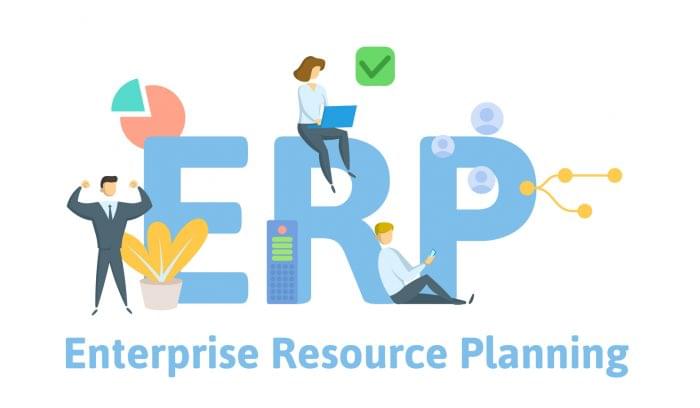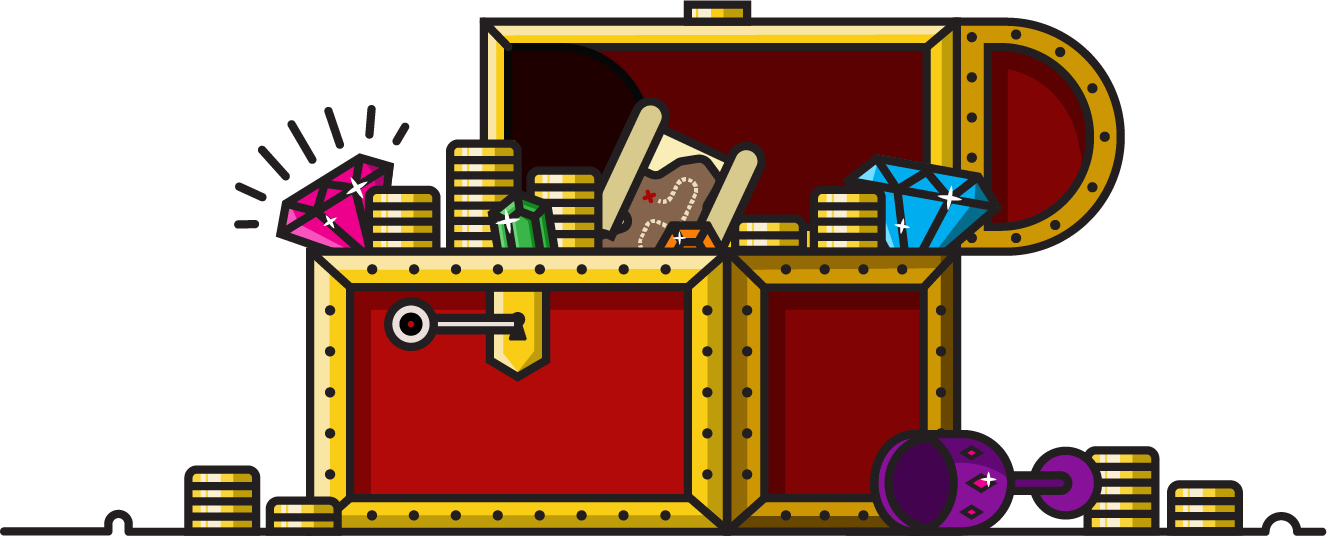Let’s say you started a small business out of your apartment a few years ago. Since you got started, you’ve really grown. You’ve grown so much, in fact, that you can no longer conduct business out of your apartment, so you rent small office space in a building downtown.
As you continue to grow, you start noticing a troubling trend: you are losing visibility of your business. You can’t shout across the office to Karen who does inventory management anymore. You have to log in to several different software solutions to find information that used to require opening an Excel sheet.
Your simple CRM used to do the job, but now you’re wondering if it might be time to invest in an ERP as well. But ERPs are traditionally used by larger businesses, and you’re still technically a small business. How do you know if the time is right?
ERP vs CRM: What’s the difference?
The days of enterprise-sized businesses being the only users of ERP systems are long gone. Businesses of all sizes use these systems today, but that doesn’t mean every business should use an ERP. Conversely, most businesses should use a CRM.
If you’re considering getting an ERP in addition to your CRM, begin the decision process by considering the different functions CRM and ERP systems serve.
| A CRM | An ERP |
| Stores your customers’ purchase history and contact information | Stores almost all data generated by your business operations from a variety of different sources |
| Helps you acquire new customers | Helps you increase efficiency and reduce costs |
| Provides you with some analysis of sales goals | Shows you a snapshot of your entire business |
As you can see, while both software solutions perform different functions, they work together. In other words, a CRM is not a simplified ERP, and getting an ERP does not replace your CRM.
This is good news because it makes your life much less stressful when it’s time to make the switch. Instead of having to move over all your customer data from Salesforce, for instance, you can simply integrate Salesforce with Netsuite or Sage.
- To recap: a CRM helps you grow your business while an ERP helps you manage that growth. You should use a CRM to scale your business until it’s too hard to manage by conventional methods.
ALSO READ: How To Use Change Management To Ease ERP Onboarding
How do you know when managing your business without an ERP is too hard?
You don’t have to wait until a big mistake happens to realize that it’s time for an ERP. If you’re paying close attention to your day-to-day operations, you should start to notice when things aren’t running smoothly anymore.
Inventory problems
If you’re an ecommerce company, you might manage your own inventory with no problems when you’re only doing a few thousand dollars in sales every month. Once you start receiving hundreds of orders a week, however, it becomes drastically harder to stay on top of fulfilling them while also ensuring that you have sufficient inventory to do so.
If you can detect a clear upward sales trend before demand outpaces supply, you can be proactive and get an ERP before you fail to deliver hundreds of customers’ Christmas presents on time.
Start doing some simple business forecasting if you aren’t already doing so. This will help you recognize that you will need more insight into daily operations in a few months and help you avoid fulfillment problems.
Communication problems
Few things in business are more important than good communication. This is true of interpersonal communication as well as interdepartmental communication.
Obviously, there are ways around this issue that don’t require getting an ERP, but at some point, a weekly all-hands meeting or a #general Slack channel just won’t cut it anymore. An ERP will streamline communication among departments by putting everything into one centralized system, eliminating the need for you to ask employees questions that require them to circle back around with you.
Too much business software
If you’re like most companies, you use a variety of different software tools to run different parts of your business. Even if you’re a small operation, you probably use a CRM, an HRIS, an accounting system, and some kind of basic marketing software.
These tools work great for individual teams, but they don’t always play nicely together. Not all systems integrate with each other, leading to information traffic jams, outdated or inaccurate information, and misalignment of key business goals across departments.
If this continues unchecked, you can end up with serious issues that affect sales forecasts and budgets. But using an ERP can integrate all these disparate systems into one single source of truth. By directing every important source of information across your business into one central database, you get an accurate and up-to-date view of your whole business.
Make your CRM work with your ERP
An ERP is a more comprehensive system than a CRM, but that doesn’t mean an ERP renders a CRM obsolete. Rather, integrating your CRM with your new ERP is an important step of implementing a new ERP, as you’ll want to pull in sales and customer information to the big-picture view of your business.
Information about your customers such as their name, contact information, order history, and support interaction lives in your CRM, but all the information about billing, shipping, and supply chain management (to name a few) lives in your ERP. This means that if you don’t integrate your CRM and ERP, you constantly have to switch back and forth between the two systems to get a full view of your customers.
Not only is this process time-consuming — it also leads to simple errors that can cause big problems down the line. For instance, a customer might reach out with a support message asking about the shipping status of their latest order, but switching back and forth between systems makes it easier to make a typo in a tracking number or to even grab a different customer’s tracking number.
Integrating your CRM to an ERP ensures that the right information is synced to the right customer, preventing uncomfortable mistakes like this from happening that hurt the customer experience.
How do you know which ERP to choose?
It’s certainly helpful to know when you should start thinking about getting an ERP, but deciding which ERP to go with is also a tough decision. To learn more about ERP software, browse our ERP Software Product Selection Tool to compare over 140 ERP vendors.
If you’re short on time, give us a call at 877.702.2082 or email us at info@technologyadvice.com. Our Technology Advisors are happy to give you a free, five-minute consultation to learn more about your business software needs and can provide you with a shortlist of the best software options for you.

